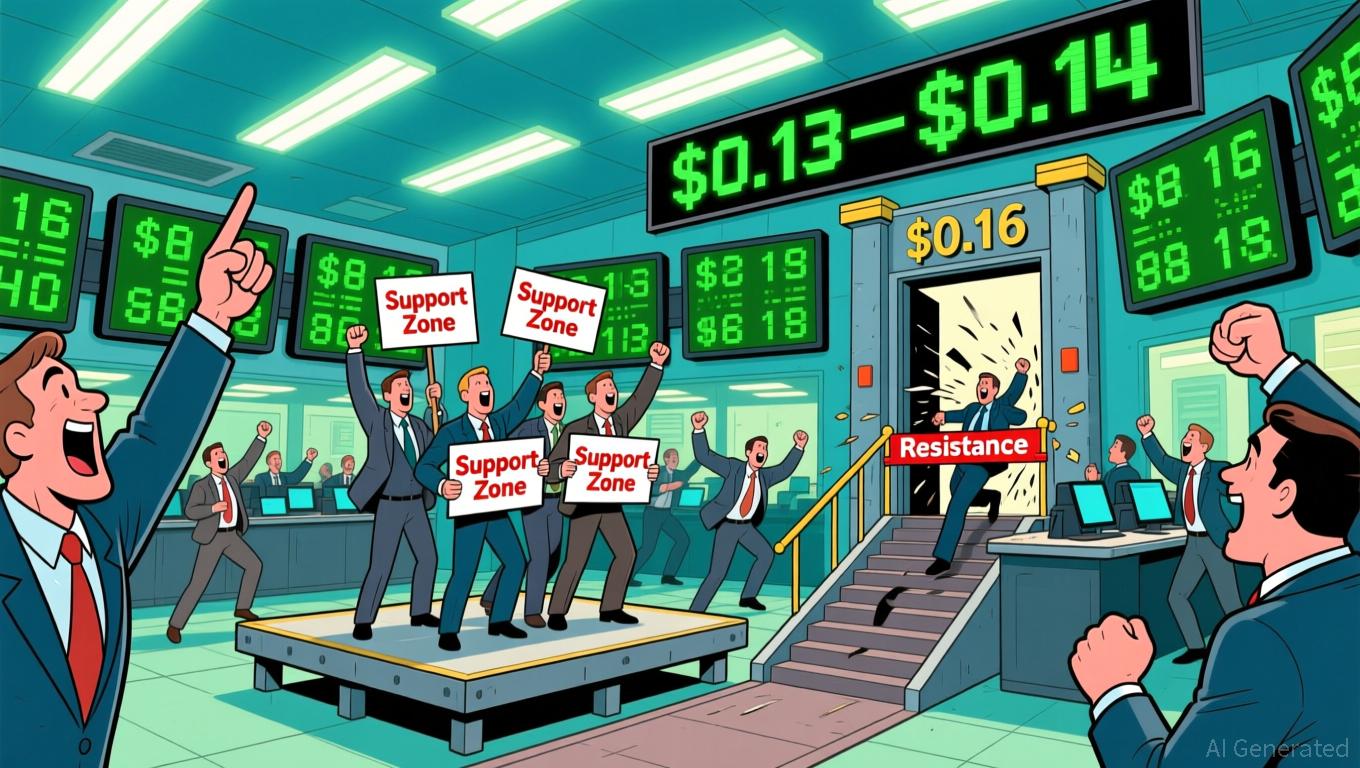Amundi Rolls Out First Tokenized Money Market Fund On-Chain
With the financial space changing quickly, Amundi has introduced its first tokenized version of the AMUNDI FUNDS CASH EUR money market fund. Investors can now hold fund units as digital tokens instead of through traditional channels. While the fund’s basic purpose and setup remain unchanged, the initiative reflects Amundi’s push to modernize fund management and adapt to shifting investor preferences.

In Brief
- Amundi has introduced a tokenized version of its AMUNDI FUNDS CASH EUR money market fund to allow investors to hold fund units digitally.
- The rollout was done with CACEIS, which provides the technical systems for tokenization and manages investor wallets and orders.
- The move comes as tokenized money market funds see rapid growth, with assets in similar products rising sharply over the past two years.
Hybrid Fund Powered by Blockchain
The tokenized fund makes use of distributed-ledger technology together with the public Ethereum network , allowing every movement of its units to be securely documented and easily monitored. Its first activity on the blockchain took place on November 4. To serve a broad range of investors, the fund follows a hybrid approach, remaining accessible through traditional channels while also offering a digital token option.
The rollout was developed in partnership with CACEIS , an asset-servicing firm that provides the technical framework for tokenization, including digital wallet management for investors and the platform for processing subscription and redemption requests. This collaboration combines blockchain innovation with traditional fund operations to deliver a seamless experience for investors.
Bringing Tokenized Funds to a Broader Investor Base
Jean-Jacques Barbéris, overseeing Institutional and Corporate Clients and ESG at Amundi, said that asset tokenization is expected to expand globally in the coming years. He emphasized that introducing tokenization through the money market fund reflects Amundi’s ability to apply its operational framework in a practical setting. The firm plans to expand tokenization while keeping strict security standards and offering additional value for clients in France and abroad.
The tokenized model provides multiple advantages, including immediate execution of orders, access to a broader and younger investor base, and continuous trading beyond traditional market hours. These benefits reinforce the hybrid distribution approach, making the fund more flexible and efficient.
Explaining how these advantages are delivered in practice, Jean-Pierre Michalowski, CEO of CACEIS, said that the hybrid transfer agent service gives clients an additional route for fund distribution. He added that “this is a decisive step towards achieving our goal of offering 24/7 subscription and redemption services for investment fund units payable in stable coins (EMT) or central bank digital currency when it becomes available.”
Amundi, based in Paris, manages around €2.3 trillion ($2.6 trillion) in assets and serves over 100 million retail investors worldwide, showing the scale at which this digital initiative is being implemented.
Growing Adoption of Tokenized Money Market Funds
The launch comes amid a notable increase in tokenized money market funds, particularly those investing in U.S. Treasuries. According to RWA.xyz, BlackRock’s blockchain money market fund currently manages $2.3 billion in digital assets, while Franklin Templeton’s equivalent fund has surpassed $826 million.
This rise reflects a broader trend noted in a recent Bank for International Settlements bulletin, which reported that after a modest start, these tokenized funds have expanded sharply over the past two years. Total value locked grew from about $770 million at the end of 2023 to nearly $9 billion by October 2025, illustrating the growing demand for blockchain-based investment solutions and the increasing role of tokenization in mainstream finance.
Disclaimer: The content of this article solely reflects the author's opinion and does not represent the platform in any capacity. This article is not intended to serve as a reference for making investment decisions.
You may also like
Bitcoin News Update: S&P Rating Drop Highlights Tether’s Risky Asset Holdings and Lack of Transparency
- S&P downgrades Tether's USDT to "5 (weak)" due to high-risk reserves and transparency gaps. - Tether's 5.6% BTC exposure exceeds overcollateralization margins, risking undercollateralization if prices drop. - CEO dismisses critique as traditional finance bias, claiming no "toxic" assets in reserves. - Regulators intensify scrutiny as stablecoin centralization risks emerge amid $184B USDT circulation. - S&P urges Tether to reduce risky assets and enhance reserve disclosure to rebuild trust.

Dogecoin Latest Updates: Is a Repeat Performance on the Horizon? Holding $0.15 May Signal a 611% Rally for Dogecoin
- Dogecoin (DOGE) stabilized near $0.15 support, triggering historical 611% rally potential to $1 by 2026. - Grayscale's GDOG ETF and pending Bitwise BWOW ETF mark institutional adoption, though initial inflows remain muted. - Technical indicators show mixed momentum with RSI near oversold levels and key resistance at $0.16. - Market remains divided as ETF-driven liquidity and on-chain infrastructure contrast with macroeconomic and regulatory risks.

Turkmenistan’s Approach to Cryptocurrency: Centralized Oversight Amidst a Decentralized Age
- Turkmenistan legalizes crypto trading under strict 2026 regulations, granting state control over exchanges, mining , and custodial services. - Law mandates KYC/AML compliance, bans traditional banks from crypto services, and classifies digital assets into "backed" and "unbacked" categories. - Central bank gains authority to operate state-monitored distributed ledgers, contrasting with decentralized approaches in South Korea and Bhutan. - Framework aims to balance innovation with oversight, testing Turkme
Bitcoin News Update: Has $162 Billion Left Crypto Due to Institutional Buying or a Broader Market Pullback?
- BlackRock deposited 4,198 BTC and 43,237 ETH into Coinbase amid crypto sell-offs, despite $355.5M Bitcoin ETF outflows. - A 1.8M BTC ($162B) overnight exchange withdrawal sparks speculation about institutional accumulation or portfolio rebalancing. - $40B in BTC/ETH exchange inflows and record $51.1B Binance stablecoin reserves highlight institutional demand for regulated crypto products. - On-chain data shows 45% of large deposits (≥100 BTC) and 1.8M BTC withdrawals, indicating mixed market sentiment ah

